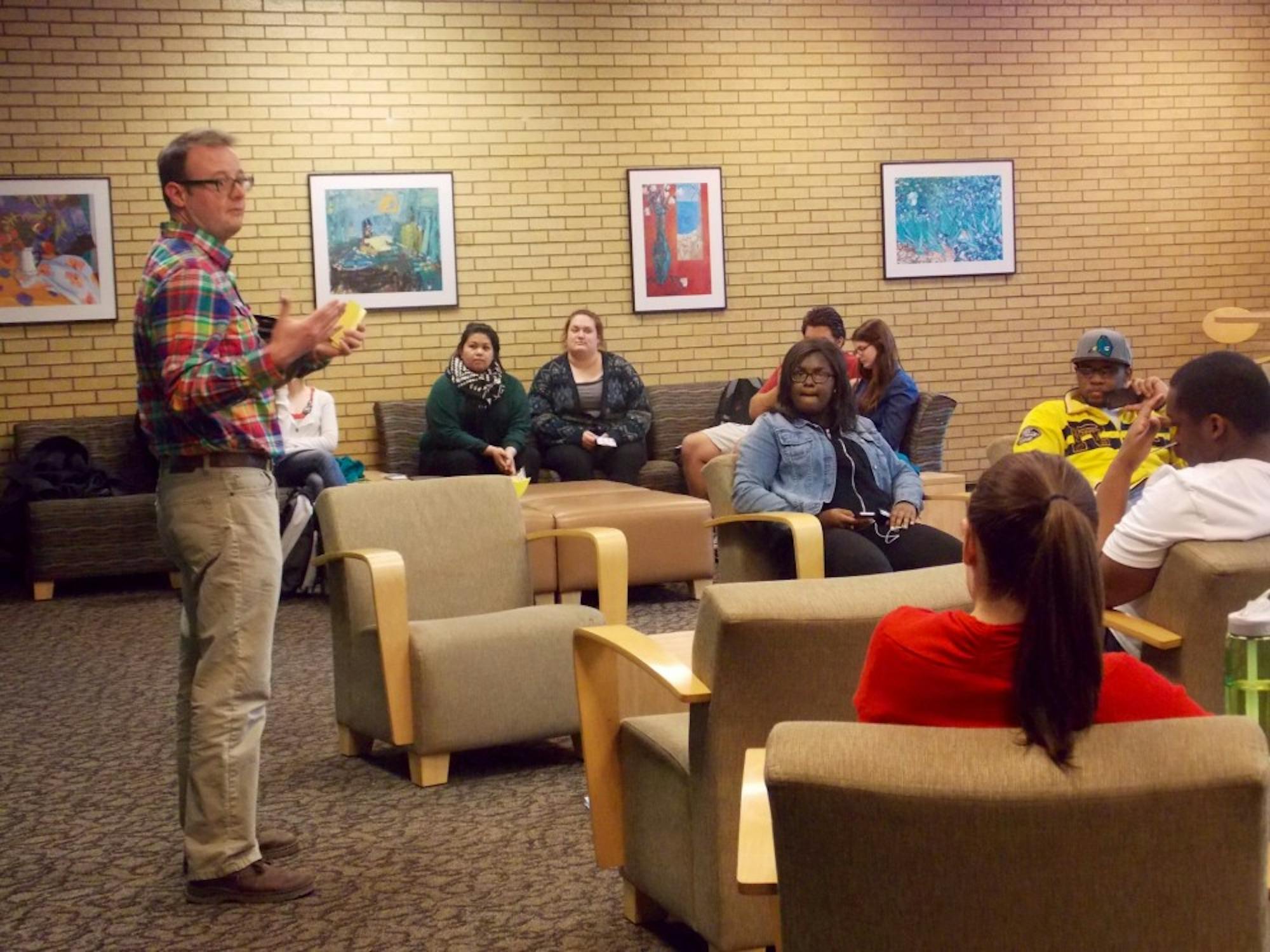Consent. Consent. Consent. It was the number one topic at Tuesday’s Consent Week event, “Healthy Sexuality.”
It seems like women are constantly told to watch out for rapists who are mysterious dark figures in the shadows with trench coats on, but there are other less obvious ways one can be sexually assaulted.
Ellen Collier, program coordinator of the Women’s Resource Center, and Eric Ward, program coordinator of the Wellness Center in the Snow Health Center, went over questions that students had pertaining to sex, sexuality and sexual assault.
“When a person consents to sex, they are a willing participant to an action that will be done to them. An audible consent is preferred,” said Ward. “Though, it isn’t just for sex. Consent should be given for things like dancing, kissing, etc. However, people may have different definitions of consent than I do. It all depends on the partner and the relationship one has with that partner.”
Those who attended the event were told to write questions on a piece of paper and put it into a bucket. Then, Ward and Collier answered the anonymous questions to the best of their ability. The questions ranged from tame to wild.
The first question started things off nicely. It was whether or not men are hotwired to cheat, to which Ward answered that they are not. Other questions were what a normal sex drive was, what good sex was and how often normal people have sex. By the way, the answer two to three times a week, but that can depend.
The answer to most of these questions was, “It depends.” It depends mostly on the relationship and the partner. Overall, Ward stressed the importance of conversation and clear communication with one’s partner.
Sitting down and simply asking about something like anal sex can be awkward and not very fun and sexy. Ward and Collier said that conversation doesn’t have to be boring and clear cut. You can ease your way into the conversation and bring up the subject gradually.
One can also use fun language to ask consent like, “Are you down?” or “Does this feel good?” It doesn’t always have to be a boring “Do you consent?” Although, Collier expressed that if the message isn’t clear, then use obvious and clear language.
When the message isn’t clear, it can lead to bad situations like sexual assault. The two made sure the students got the point that only a yes means yes. No is not a yes. Being drunk is not a yes. Not sure is not a yes. Silence is not a yes. Only a yes means yes.
At the end, Collier gave out goodie bags with lube, condoms, and small flyers with factoids on them. Ward said that if anyone ever needs a condom, they are available at the WRC, the Wellness
Center and the Student Government office.
There are four events for Consent week, with the last one being “A Walk in Her Shoes” at 7 p.m. on April 4.










